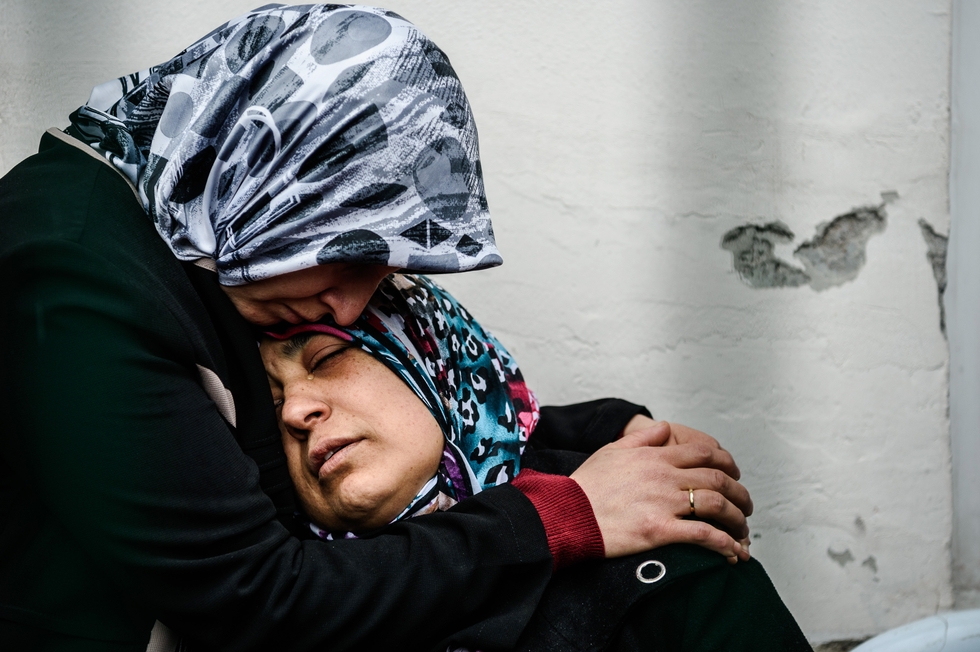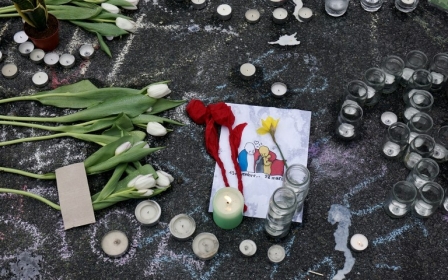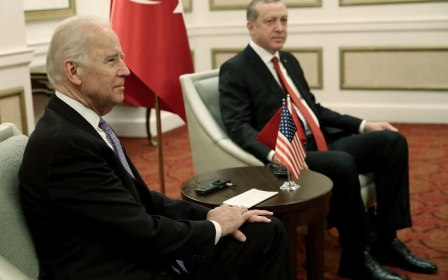Turkey needs its allies' support against terrorism

An American official visiting Ankara once asked me to rank Turkey’s priorities in dealing with the Kurdistan Workers' Party (PKK) and the so-called Islamic State (IS), both designated as terrorist organisations. The very same question is frequently asked by pundits following Turkish politics from outside either to get a real sense of Turkey’s priorities or indirectly criticise Turkey’s ongoing military operations against the PKK, while them asking to focus on the IS instead.
As much as it sounds dispassionate to the outsiders, for someone who drives often through Kizilay, where the PKK affiliate TAK’s first suicide bomber killed 34 and injured 125, and a second one killed 28 and injured 61, and Ulus, where an IS suicide bomber killed 97 and injured 246, the question has no semblance of empathy and carries no relevance.
If one asks the same type of question to an American soldier stationed in Afghanistan, in the Gulf or in Iraq, it is a sure bet that their rankings would not match with each other or with those of the Pentagon. The Taliban in Afghanistan, IS in Iraq and al-Qaida in the Gulf would have priority over the others in the eyes of those enduring the realities on the ground. In other words, our daily realities determine our priorities, and Turkey, these days, does not have the elbow room to focus on the fight with one terror organisation and do less against the other.
Ankara, the capital city that I have been living in for the past five years, was struck by three consecutive suicide bombings perpetrated by two different terrorist organisations in the last five months. Suicide bombers also targeted Istanbul, the unofficial capital of Turkey, twice, claiming lives of dozens including foreign nationals. Turkey is indeed going through difficult times, and apparently its simultaneous war on terror against the PKK in southeastern Turkey and northern Iraq and against the IS in Syria spilled over Turkey’s heartlands.
Turkey is currently fighting against the PKK militants who, after unilaterally ending ceasefire with the government, carried the armed conflict into several districts in southeastern Turkey where they declared so-called autonomy. In the meantime, Turkey continues to hit IS targets in Syria as a member of the international anti-IS coalition, train and equip anti-IS fighters in Syria and Iraq and avails its air bases, most notably Incirlik, to the international coalition for air strikes against the IS.
If al-Qaeda affiliates are terrorists why are PKK's affiliates not?
While Turkey accelerates its fight against terror and tries to cope with these consecutive attacks, a rather superfluous discussion is going on with regard to the link between the PKK and its affiliates with mind-reeling amount of acronyms: TAK, KCK, YPG, PYD, Kongra-Gel etc. The PKK uses a myriad of sub-groups for either PR purposes or strategic calculations; meanwhile, some Western countries feign ignorance about the organic link between these groups for pragmatic and conjectural reasons.
The National Counterterrorism Centre of the US, for example, had listed the PYD as the “Syrian affiliate” of the PKK in 2014 but has been publicly arguing since September 2014 when the US started sending military aid to the YPG that the PKK and YPG are two separate groups. It is common knowledge that the PKK and its affiliates in Syria share the same militant pool, utilise the same financial and military sources, and the mountain cadres of the PKK have the ultimate say in sub-groups’ major operations. Comparatively speaking, the link between the al-Qaeda centre and its affiliates in, say, Yemen or Syria is much weaker than the one between the PKK and YPG.
The terror groups that Turkey fights share many commonalities, although handled differently by some in the West. Both groups, for example, have radical ideologies, though at opposite poles, which sanctify suicide bombers and legitimise civilian deaths. The chaos in Syria gave the both group operational capabilities they could not dream of five years ago. They both control territory in Syria bordering the NATO member, Turkey; and their recent attacks are enabled by their presence in Syria which became a hotbed for recruitment and training of terrorists. Both groups induce refugee flows, fight against Turkish and Western allies in Syria, and maintain either military and/or financial ties with the Assad regime.
Despite their commonalities in spreading terror, the PKK has been exploiting the IS terror to win sympathy for its own. The PKK supporters, for instance, demonstrated in London by carrying the picture of the Ankara bomber without any legal prosecution. Similarly, they erected a tent just behind the European Union building in Brussels flying the PKK flags sanctifying the suicide bombers again without any police interference. This of course fuels the discussions among the Turkish public that the PKK has Western backing, and Turkey is left alone by friends in its rightful fight against terror.
If the recent attacks in Turkey as well as those in Brussels and Paris have proved one thing: that is terrorism is a problem for us all. A bomb that targets Ankara or Istanbul also targets New York or Paris. Terrorism kills indiscriminately as it killed Turks, Israelis and Iranians together just on 19 March in Istanbul. Therefore, no country can tackle with it by only domestic measures. This is why the US sought cooperation of regional countries after the 9/11; and this is exactly why the international community should stand united against terrorism of all kinds, whether it is IS, al-Qaida or the PKK terror in all its forms, and give its principled support to Turkey in its fight against terror.
- Ufuk Ulutas is the director of foreign policy research at SETA Foundation, a non-partisan think-tank based in Ankara. You can follow him on Twitter @ufukulutas
The views expressed in this article belong to the author and do not necessarily reflect the editorial policy of Middle East Eye.
Photo: A mother of a victim cries as she waits for the body of her son on 14 March 2016 at the forensic building in Ankara, a day after a suicide car bomb ripped through a busy square in central Ankara (AFP).
Middle East Eye propose une couverture et une analyse indépendantes et incomparables du Moyen-Orient, de l’Afrique du Nord et d’autres régions du monde. Pour en savoir plus sur la reprise de ce contenu et les frais qui s’appliquent, veuillez remplir ce formulaire [en anglais]. Pour en savoir plus sur MEE, cliquez ici [en anglais].





